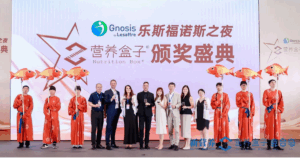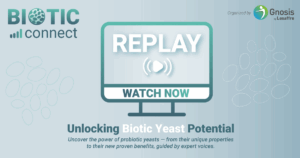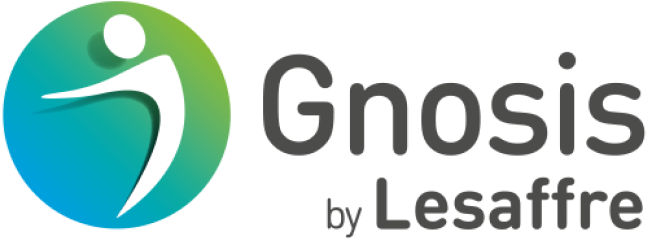
Ex-NattoPharma research partners publish important review paper clearly identifying the need for a Vitamin K2-specific RDI (Recommended Daily Intake).
RDI for Vitamin K2
Widespread Vitamin K deficiency has had an indelible impact on global cardiovascular and bone health, yet there is no established RDI (Recommended Daily Intake) for Vitamin K2. To that end, Nutrients has published a new review paper[1] clearly identifying that differences between Vitamins K1 and K2, elucidating the need for a K2-specific RDI, completed with the support of NattoPharma, the Vitamin K2 leader, as partner within the Horizon 2020 grants EVOluTION and INTRICARE.
Vitamin K and its essential role in coagulation (vitamin K [Koagulation]) have been well established and accepted. Many countries have an RDI for vitamin K based on early research, and its necessary role in the activation of vitamin K-dependent coagulation proteins is known. According to the authors of “Vitamin K2 Needs an RDI Separate from Vitamin K1,” in the past few decades, the role of vitamin K-dependent proteins in processes beyond coagulation has been discovered. Various isoforms of vitamin K have been identified, and vitamin K2 as long-chain menaquinones (i.e., menaquinone-7, or MK-7) specifically has been highlighted for its long half-life and extrahepatic activity, whereas the dietary form vitamin K1 and shorter-chain menaquinones have much shorter half-lives.
“In this review, we highlight the specific activity of vitamin K2 based upon proposed frameworks necessary for a bioactive substance to be recommended for an RDI. Vitamin K2 meets all these criteria and should be considered for a specific dietary recommendation intake,” the authors write.
NATTOPHARMA AND RESEARCH
Ex-NattoPharma announced its intention to spearhead the pursuit of a K2-specific RDI in 2018. The program began with a team of researchers at Maastricht University, the Netherlands, the group that has led the way discovering and validating the health benefits of Vitamin K2, guided by Dr. Leon Schurgers, Professor of Biochemistry of Vascular Calcification and Vice Chair of Biochemistry at the Cardiovascular Research Institute Maastricht (CARIM), Maastricht University. NattoPharma has worked closely with the Maastricht University in documenting benefits of the company’s exclusive branded MenaQ7® Vitamin K2 as MK-7, since 2004 – work that has been recognized with many peer-reviewed scientific papers and with recently awarded research grants.
“We have been working with Maastricht University for almost two decades validating the health benefits of Vitamin K2, creating this category. Our work, in addition to others’, is building the necessary body of evidence required to convince regulatory bodies how essential Vitamin K2 is for the betterment of global human health,” says Kjetil Ramsøy, NattoPharma CEO. “This is no small undertaking, yet we at NattoPharma believe it is vital we reach a global recommendation for K2 intakes if we are to correct the K2 deficiency that has so negatively impacted the bone and cardiovascular health, and correcting this deficiency can benefit men and women, adults and children.”
To that end, through the Horizon 2020 grants awarded in which the CARIM is the beneficiary, in partnership with ex-NattoPharma, the company has hosted PhD students (ESRs) to teach them about the food and supplement industry and foster a further understanding of the RDI values set by FDA/EFSA. These ESRs utilized this knowledge as they conducted a comprehensive literature review elucidating the data for K2’s bone and cardiovascular benefits. This cogent argument will work towards the efforts of petitioning for RDIs.
Since the program was initiated, four additional review papers[2-5] have been published, culminating with this solidified argument. Dr. Schurgers’ team has been joined by the International Science and Health Foundation (ISHF), a research consortium responsible for the educational portal VitaminK2.org.
References:
1 Akbulut AC, Pavlic A, Petsophonsakul P, Halder, M, Maresz K, Kramann R, Schurgers L. Vitamin K2 Needs an RDI Separate from Vitamin K1. Nutrients 2020, 12, 1852; doi:10.3390/nu12061852.
2 Halder M, Petsophonsakul P, Akbulut AC, Pavlic A, Bohan F, Anderson E, Maresz K, Kramann R, Schurgers L. Vitamin K: Double Bonds Beyond Coagulation Insights Into Differences Between Vitamin K1 and K2 in Health and Disease. Int J Mol Sci. 2019, 20, 896; doi:10.3390/ijms20040896.
3 Petsophonsakul P, Furmanik M, Forsythe R, Dweck M, Schurink GW, Natour E, Reutelingsperger C, Jacobs M, Mees B,Schurgers L. Role of Vascular Smooth Muscle Cell Phenotypic Switching and Calcification in Aortic Aneurysm Formation: Involvement of Vitamin K-Dependent Processes. Arterioscler Thromb Vasc Biol. 2019;39:00-00. DOI: 10.1161/ATVBAHA.119.312787.
4 1 Florea A, Morgenroth A, Bucerius J, Schurgers LJ, Mottaghy FM. Locking and loading the bullet against micro-calcification. Euro J Prev Cardiology (2020) 0(00) 1-8. doi:10.1177/2047487320911138.
5 Dai L, Schurgers LJ, Shiels PG, Stenvinkel P. Early vascular ageing in chronic kidney disease: impact of inflammation, vitamin K, senescence and genomic damage. Nephrol Dial Transplant (2020) 35:ii31-37. doi:10.1093/ndt/gfaa006.
DISCOVER ALL OUR LATEST NEWS

Webinar Rethinking Women’s Health 24 June 2025
Women’s health is complex, constantly evolving, and a broader perspective is long overdue, one that goes beyond reproductive care to include mental health, chronic conditions, and the unique ways diseases manifest in women.

Gnosis by Lesaffre Highlights Quatrefolic® at New Nutrition Forum in Hangzhou, China
Gnosis by Lesaffre was proud to serve as the Title Sponsor of the New Nutrition Forum held in Hangzhou on June 6, 2025. As part of the event’s scientific agenda, we hosted an engaging seminar focused on Quatrefolic®, the 4th generation active folate.

Biotic Live: A Successful First Edition Exploring the Power of Probiotic Yeasts
Gnosis by Lesaffre recently hosted the first edition of Biotic Live, a unique event dedicated to exploring the potential of probiotic yeasts. This live session brought together leading experts to present the latest scientific insights and real-world applications of live yeasts in human health.


